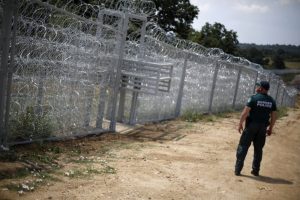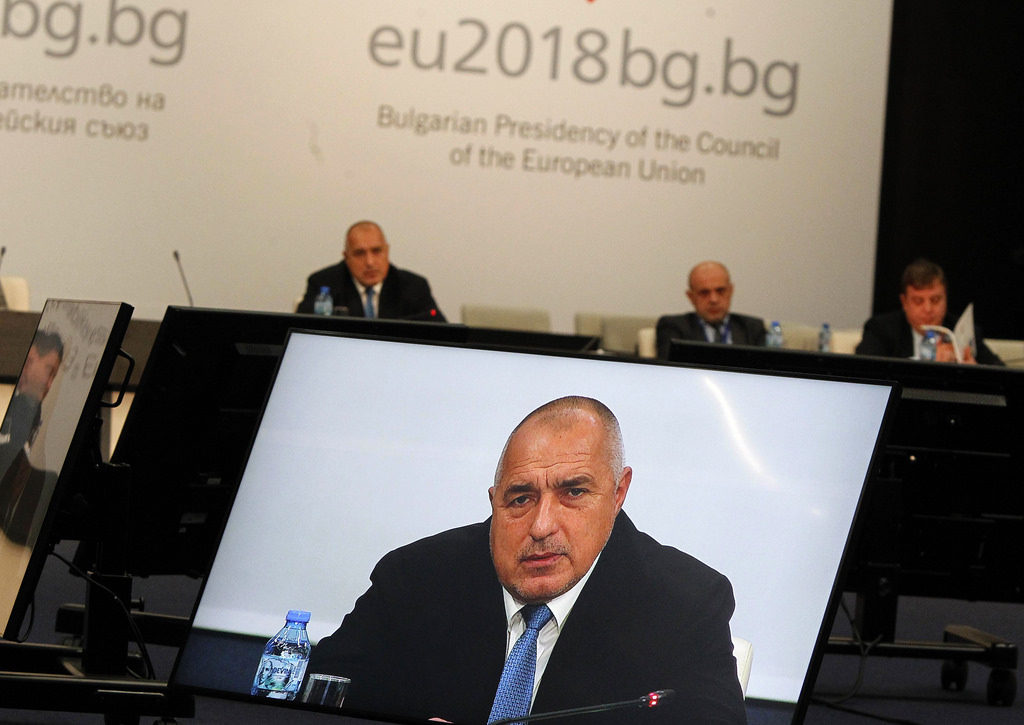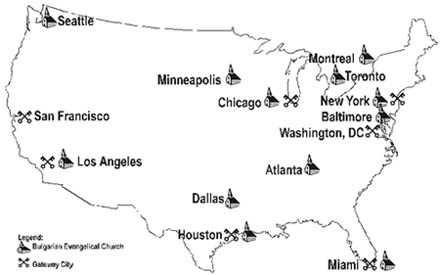2024 European Parliament election in Bulgaria
5 seats, 24.26% — The 2024 European Parliament election in Bulgaria will be held on June 9, 2024 as part of the 2024 European Parliament election. This will be the fifth parliamentary election since Bulgaria’s EU accession in 2007, and the first to take place after Brexit. Bulgaria will simultaneously hold a separate parliamentary election on the same day.
Since the pandemic in 2020, it has become customary that elections are held in Bulgaria twice a year regardless of the high cost for the country. It is expected that as in the previous 4-5 years, the second round of Parliamentarian elections will be held in October.

Government Elections in Bulgaria (2005-2022):
2005 Parliamentary Elections
2006 Presidential Elections
2007 Municipal Elections
2009 Parliamentary Elections
2009 European Parliament elections
2011 Presidential Elections
2011 Local Elections
2013 Early parliamentary elections
2014 Early Parliamentary Elections
2015 Municipal Elections
2016 Presidential election
2017 Parliamentary elections
2019 European Parliament election (23-26 May)
2019 Bulgarian local elections
2019 Municipal Elections
2021 April National Parliament election
2021 Second National Parliament election
2021 Third National Parliament and Presidential elections
2022 October elections for 48th National Assembly after the fall of a four-party coalition in June 2022.
2023 Bulgarian parliamentary election
Bulgarian Evangelical Churches in the European Union (2022 Report)
- Bulgarian Evangelical Churches in Germany
- Bulgarian Evangelical Churches in Spain
- Bulgarian Evangelical Churches in England
- Bulgarian Evangelical Churches in France
- Bulgarian Evangelical Churches in Belgium
- Bulgarian Evangelical Churches in Italy
- Bulgarian Evangelical Churches in Cyprus
- Bulgarian Evangelical Churches in Crete
READ MORE:
- First Bulgarian Church in Chicago Opened in 1907
- Gateway Cities for Bulgarian Evangelical Churches
- How to Start a Bulgarian Church in America from A-to-Z
- Unrealized Spiritual Harvest as a Paradigm for Cross-Cultural Ministries among Migrant and Disfranchised Ethnic Groups in America Today
Bulgarian Evangelical Churches in the European Union (2021 Report)
- Bulgarian Evangelical Churches in Germany
- Bulgarian Evangelical Churches in Spain
- Bulgarian Evangelical Churches in England
- Bulgarian Evangelical Churches in France
- Bulgarian Evangelical Churches in Belgium
- Bulgarian Evangelical Churches in Italy
- Bulgarian Evangelical Churches in Cyprus
- Bulgarian Evangelical Churches in Crete
READ MORE:
- First Bulgarian Church in Chicago Opened in 1907
- Gateway Cities for Bulgarian Evangelical Churches
- How to Start a Bulgarian Church in America from A-to-Z
- Unrealized Spiritual Harvest as a Paradigm for Cross-Cultural Ministries among Migrant and Disfranchised Ethnic Groups in America Today
European Delights: A Sweet Journey Through Europe (now on Kindle)
 Cakes, cookies, custards, puddings, candies, fried dough, pies and pastries. From the unconventional, recipes of Albanian Walnut Lemon Cake and Lithuanian Poppy Seed Cookies to the classic Tiramisu and Macaroon recipes, this cookbook takes your taste buds on a sweet journey throughout Europe. Desserts have come a long way since the dried fruits of the ancient civilizations as the first candies to soufflés and cakes once sugar began to be manufactured in the Middle Ages. This cookbook contains some of both the simple and more advanced recipes of Europe. It features 40 authentic dessert recipes representing nearly every European country and with each recipe there is a story to tell. The word “dessert” originated from the French word desservir “to clean the table” and these delights will make you want to clean your table a bit faster.
Cakes, cookies, custards, puddings, candies, fried dough, pies and pastries. From the unconventional, recipes of Albanian Walnut Lemon Cake and Lithuanian Poppy Seed Cookies to the classic Tiramisu and Macaroon recipes, this cookbook takes your taste buds on a sweet journey throughout Europe. Desserts have come a long way since the dried fruits of the ancient civilizations as the first candies to soufflés and cakes once sugar began to be manufactured in the Middle Ages. This cookbook contains some of both the simple and more advanced recipes of Europe. It features 40 authentic dessert recipes representing nearly every European country and with each recipe there is a story to tell. The word “dessert” originated from the French word desservir “to clean the table” and these delights will make you want to clean your table a bit faster.
Preview and purchase today on: Amazon Kindle Store
The Bulgarian presidency of the Council of the European Union
January 15, 2018 by Cup&Cross
Filed under Featured, News, Publication
The priorities of the Bulgarian presidency are driven by its motto: ‘United we stand strong’, which is also the motto of the coat of arms of the Republic of Bulgaria. The presidency will work with its partners on unity among the member states and the EU institutions to provide concrete solutions to build a stronger, more secure and solidary Europe. During the next 6 months, the presidency will focus on four key areas: future of Europe and young people, Western Balkans, security and stability and digital economy.
Bulgarian Evangelical Churches in the European Union (2017 Report)
- Bulgarian Evangelical Churches in Germany
- Bulgarian Evangelical Churches in Spain
- Bulgarian Evangelical Churches in England
- Bulgarian Evangelical Churches in France
- Bulgarian Evangelical Churches in Belgium
- Bulgarian Evangelical Churches in Italy
- Bulgarian Evangelical Churches in Cyprus
- Bulgarian Evangelical Churches in Crete
READ MORE:
- First Bulgarian Church in Chicago Opened in 1907
- Gateway Cities for Bulgarian Evangelical Churches
- How to Start a Bulgarian Church in America from A-to-Z
- Unrealized Spiritual Harvest as a Paradigm for Cross-Cultural Ministries among Migrant and Disfranchised Ethnic Groups in America Today
European Court of Human Rights to Stop Social Engineering
The European Court in Strasbourg has condemned the Russian law which protects children from propaganda by “sexual minorities”. This is not the Court’s first decision, based not on real human rights, but on radical ideologies which destroy the core values of each person and each sovereign people.
Recently, the European Court of Human Rights in Strasbourg (ECHR) adopted a new decision on the complaint of Russian homosexual activists (“Bayev and Others v. Russia”). In it, in fact, the Court declared the Russian law which prohibits the promotion of homosexuality and other non-traditional sexual relations among children, “discriminates” and violates “human rights” (below, you can read the full text of the decision).
The social meaning of the decision of the European Court is obvious – in fact, it claims that the promotion of homosexuality among children and to the general public is a “human right”.
This decision, no doubt, is inspired not by legal logic, but, frankly, by ideology. And, it is an ideology of a radical sort, directed against the family, marriage, traditional moral values of most European nations, and most importantly – against the interests of the children themselves.
Everything that does not agree with this ideology is completely ignored by the Court. And the Court does this not just without justification in the European Convention for the Protection of Human Rights and Fundamental Freedoms, which should completely determine its work, but also in direct contradiction tothis international document and its binding norms.
During the consideration of the case, not only was the position of the Russian Federation presented, but also – as a third party position – the arguments of the Russian NGO, “Family and Demography Foundation” (you can read these arguments in the “For More Information” section, below).
These convincing and sound arguments were ignored or discarded by the Court as non-essential.
The Court ignored the objective facts – that, according to authoritative scientific data, the homosexual lifestyle is associated with a serious danger to physical and mental health. Public promotion of it – especially among children – threatens the health of the population.
The Court also ignored the fact that international legal standards require special legal protection for the family – the “natural and fundamental group unit” – and marriage between a man and a woman, on which it is based. Children have the right to grow and be educated in such a social setting that protects the family and associated moral values, and not in a society where the opposite “values” of so-called “sexual minorities” are openly advocated.
The Constitutional Court of the Russian Federation, in its decisions, has repeatedly stressed: from the Constitution of our country, “… it follows that the family, motherhood and childhood in their traditional understanding, understood from our ancestors’ understanding, represent those values that ensure a continuous change of generations, serve as a condition for the preservation and development of a multinational people of the Russian Federation, and therefore they need special protection from the state “.
The Court ignored the fact that the promotion of a homosexual lifestyle as “normal” contradicts the values of the majority of Russian residents – and, not only representatives of different traditional religions, but also non-believers as well.
All this the European Court ignored and rejected in defiance of the norms of the Convention itself, to which it is obliged to be guided.
After all, Article 10 of the Convention, in which the Court accused the Russian Federation of a “violation” in its decision, clearly indicates that freedom of expression can be limited to national laws,“in the interests of national security,…for the protection of health and morals,…or the rights of others.”
The Constitutional Court of the Russian Federation, in its recent decision, fairly and reasonably explained that the European Court, in interpreting the Convention for the Protection of Human Rights and Fundamental Freedoms, must rely on generally accepted international norms, and, in particular, on the provisions of the 1969 Vienna Convention on the Law of Treaties:
“By fixing in Article 26 the fundamental principle of international lawpacta sunt servanda (each treaty in force is binding on its participants and must be executed in good faith by them), the Vienna Convention also establishes a general rule for the interpretation of treaties, which provides that the treaty must be interpreted in good faith in accordance with the usual meaning that should be given to the terms of the treaty in their context, and also in the light of the object and purpose of the treaty(art. 31, para. 1).
Thus, an international treaty is binding for its participants in the sense that can be clarified through the given rule of interpretation. From this point of view, if the European Court of Human Rights, in interpreting the case, or a provision of the Convention for the Protection of Human Rights and Fundamental Freedoms, gives the concept used in it something other than its ordinary meaning or interprets it contrary to the object and purpose of the Convention, the State, in respect of which the decision in this case has been delivered, has the right to refuse its execution, as beyond the limits of the obligations voluntarily assumed by this state upon ratification of the Convention.”
Unfortunately, the European Court of Human Rights has, for more than a year now, instead of making substantiated and just decisions (having clear legal grounds), and, instead of protecting the genuine human rights guaranteed by the relevant Convention, very often deals with very different things.
Nowadays, the Court has started to impose a new, groundless understanding of “human rights”, based on false and dangerous radical ideologies. These ideologies are directed against family, marriage, the rights of parents, and human life itself.
At the same time, the Court constantly issues its own self-referencing interpretations of the norms of the Convention, deprived of real legal grounds, for the “emerging European consensus” in the field of human rights. The Court calls this approach “an evolutionary interpretation of the Convention”, but there are no grounds for it in the Convention itself. Moreover, it follows from the Vienna Convention on the Law of Treaties that this approach is inadmissible.
In reality, the ECHR replaces genuine international norms with its own baseless judgements and opinions which are not based on the text of the Convention.
In recent years, the Court has taken very many such unjust decisions. The current decision, in the case of Bayev and Others v. Russia, is just one of many examples of this kind.
Below, you can read about some of these rulings in a special message from the Russian Family and Demographic Foundation, to the Committee of Ministers of the Council of Europe, as well as a report by Paul Coleman, a legal expert from the international organisation “Alliance Defending Freedom”.
It is enough to list only some of the recent examples of judicial activism at the ECHR:
- In the case of Koch v. Germany, the Court, in fact, included in the “right to privacy” the possibility of euthanasia (suicide with the help of doctors). At the same time, the Court came into conflict with their own legal precedents in other decisions!
- In the case of Goodwin v. The United Kingdom, the Court stated that it is no longer “convinced” that, in our time, it is still possible to proceed from the assumption that the words “man” and “woman” should “denote the definition of gender on the basis of purely biological criteria”. In other words, the Court declared that gender today is no longer determined by sex – supporting a gender-based ideology, devoid of any scientific basis.
- In the case of Schalk and Kopf v. Austria, the Court stated that there was “an emerging European consensus in favor of the legitimate recognition of same-sex marriages.” And, in the case of Vallianatos and Others v. Greece, the Court held that Greece “violated the rights” of same-sex couples by not allowing them to register “civil unions”. The fact is that the Greek law allows such unions to be concluded as an alternative to marriage, but only of different sexes. But, the Court stated that the state should recognise “civil union” for same-sex couple, too.
- And, in fact, in its decision on Paradiso and Campanelli v. Italy, several years ago, the Court tried, not only to force states to recognise surrogate motherhood (which is banned in many countries), but, also, to “legalise” the trafficking in children.
By acting in this way, the European Court deprives itself of legitimacy and undermines the protection of real human rights.
Here it is appropriate to quote the dissenting opinion of Judge Ziemele of the European Court, commenting on the Court’s decision in Andreeva v. Latvia:
“The Court must not go against the general principles of interpretation established by the Vienna Convention on the Law of Treaties, and thus act ultra vires. This creates challenges in the field of international law that have a certain novelty, and affects the value of such judgements. The Court should not promote the fragmentation of international law in the name of dubious human rights and should not easily take decisions that could undermine state building, because the protection of human rights still requires the existence of strong and democratic states…”.
Please sign this petition to the European Court of Human Rights in Strasbourg!
Let’s tell the European Court that its approach to interpreting the Convention is not based in real human rights, but in an ideology. By acting in this way, it usurps the rights of sovereign peoples, and these actions undermine the international system for the protection of genuine human rights. By its unjust actions, the Court destroys its own authority and legitimacy.
If this is not immediately stopped, then we will be ready to demand that our governments withdraw from the European Convention on the Protection of Human Rights and Fundamental Freedoms!
Sanctuary Gateway Cities for Eastern European Slavic and Bulgarian Immigrant Churches in North America
 Since 1994 Cup & Cross Ministries International has assisted churches across the United States and has strategically planned and developed a process which incorporates Bulgarian Evangelical Churches in North America. The first success of this endeavor was the establishment of the Bulgarian Evangelical Church of God in Chicago in 1995.
Since 1994 Cup & Cross Ministries International has assisted churches across the United States and has strategically planned and developed a process which incorporates Bulgarian Evangelical Churches in North America. The first success of this endeavor was the establishment of the Bulgarian Evangelical Church of God in Chicago in 1995.
The Bulgarian Church of God in Chicago followed a rich century-long tradition, which began with the establishing of Bulgarian churches and missions in 1907. (read the history) Consecutively, our 1995 Church Starting Paradigm was successfully used in various studies and models in 2003. The program was continuously improved in the following decade, proposing an effective model for leading and managing growing Bulgarian churches.
Based on the Gateway cities in North America and their relations to the Bulgarian communities across the continent, it proposed a prognosis toward establishing Bulgarian churches (see it here) and outlined the perimeters of their processes and dynamics in the near future (read in detail). Since 1995 twelve more Bulgarian churches have been started in strategic immigration gateways across the United States and Canada. For the past four years our team have been involved in the process of establishing Bulgarian congregations in Atlanta, Phoenix and San Francisco. Read complete paper (PDF)
Toward Context of Ministry Applications
In the beginning of the 21st century the Protestant Church in Bulgaria is entering a new constitutional era in the history of the country. Since the fall of the Berlin Wall, the political and economic challenges in Eastern Europe have strongly affected the Evangelical Churches. More than ever before, they are in need of reformation in doctrines and praxes in order to adjust to a style of worship liberated from the dictatorship of the communist regime. In order to guarantee the religious freedom for our young, democratic society, the Protestant Movement in Bulgaria needs a more dynamic representation. Such can be provided only by people who will create a balance between the old atheistic structures and the new contemporary, nontraditional style of ministry.
Similar is the case among Bulgarian Evangelical Churches in North America which also share analogue dynamics with congregations of Latin American immigrants. Several facts are obvious from such comparison. It is apparent that Bulgarian immigrants come to North America in ways similar as other immigrant groups. Large cities which are gateways for immigrants are probable to become a settlement for Bulgarian immigrants due to the availability of jobs, affordable lodging and other immigrants from the same ethnic group.
The emerging Bulgarian immigrant communities share religious similarities and belongingness which are factors helping to form the communities. As a result of this formation process, the Bulgarian Evangelical Churches in North America emerge. It also seems natural to suggest that as this process continues, Bulgarian Evangelical Churches will be formed in other gateway cities and other large cities which meet the requirements to become a gateway city. Such has been the case with Latin American churches. If this is true, it should be proposed that the Bulgarian Churches in North America follow a strategy for church planting and growth which targets these types of cities.
It is encouraging, at the same time, to observer that one of the positive estimates provided by our doctoral project is also coming to reality. In 2002-2004, based on analyses provided by the New Religious Immigrants Project, our research suggested that the next Bulgarian Evangelical Church will be established in the last of the Seven American Gateway Cities which was still without a Bulgarian Church, namely the city of San Francisco. Our resent visit in the area of the Bay Area showed that this prediction is already progressing into a reality as the Bulgarian Diaspora there is already producing a Bible study group out of uniting Bulgarian college students from Barkley and young computer professionals in the area.
Geographical Location of Bulgarian American Churches and Gateway Cities.
Currently, Bulgarian Evangelical Churches are located in cities which have a high concentration of foreign-born immigrants. Such cities are called gateway cities, a large immigrant point-of-entry city to the United States. Immigrants typically enter the United States through one of these cities and settle there. Such cities contain over half of the foreign-born population in the United States. There are Bulgarian Evangelical Churches active in six of the seven gateway cities as follows:
Bulgarian Evangelical Churches in Gateway Cities
| Gateway City | Foreign Born | Percent of Foreign Born | Bulgarian Church |
| 1. New York, NY | 3,657,269 | 18.7% | Yes |
| 2. Los Angeles, CA | 3,944,828 | 27.1% | Yes |
| 3. Houston, TX | 460,380 | 12.3% | Yes |
| 4. Washington, DC | 578,786 | 8.6% | No |
| 5. Miami, FL | 1,072,843 | 33.6% | Yes |
| 6. Chicago, IL | 914,58 | 11.1% | Yes |
| 7. San Francisco, CA | 1,250,693 | 20.0% | No |
Several facts are obvious from the above comparison. It is apparent that Bulgarian immigrants come to North America in ways similar to other immigrant groups, channeled through the listed gateway cities. Large cities which are gateways are more probable to become a settlement for Bulgarian immigrants due to the availability of jobs, lodging and other immigrants from the same ethnic group. The emerging Bulgarian immigrant communities share religious similarities and belongingness which are factors helping to form the communities. As a result of this process of formation of Bulgarian immigrant communities, the Bulgarian Evangelical Churches in North America emerge. It also seems natural to suggest that as this process continues, Bulgarian Evangelical Churches will be formed in the remaining two gateway cities (Washington, D.C. and San Francisco) and other large cities which meet the requirements to become a gateway city (for example, the city Atlanta). If this is true, it should be proposed that the Bulgarian Churches in North America follow a strategy for church planting and growth which targets this type of cities. With all this in mind, the Unrealized Spiritual Harvest of Bulgarian Churches in North America remains unforgiving in history…
Resources for Further Study:
- Seven Churches of Revelation
- How to Start a Bulgarian Church in America from A-to-Z
- Bulgarian Churches in North America: Contextual Assessment
- Bulgarian Churches in North America: Statement of Problem
Political row in Bulgaria over European Parliament migration resolution
Bulgaria’s largest parliamentary party GERB and the nationalist Patriotic Front coalition have launched verbal attacks on the opposition Bulgarian Socialist Party and the Movement for Rights and Freedoms, saying their MEPs backed a European Parliament resolution that effectively encourages illegal migration.
The 93-point resolution on human rights and migration in third countries was adopted by the European Parliament on October 25.
At a news briefing in the National Assembly, GERB MP Galia Zaharieva quoted extracts from the EP resolutio on the need “to avoid creating separate districts for migrants, by promoting inclusion and the opportunity to take up all the social opportunities on offer”; and that the EP “considers that migration is recognised globally as being a powerful tool for sustainable and inclusive development.”
Zaharieva said that the resolution indicated that migration was beneficial. At the same time, she hit out at the opposition parties, including the BSP, for being critical about the Bulgarian government’s handling of migration and she accused the opposition of being alarmist in making false claims about the migration situtation in Bulgaria.
Valeri Simeonov, co-leader of the nationalist Patriotic Front, a minority partner in the coalition government arrangement, said that the BSP and MRF MEPs who had backed the resolution should be withdrawn from their posts and replaced by others further down the lists.
Simeonov said that the EP resolution had been adopted by 339 to 333 votes, meaning that the votes of the Bulgarian MEPs had been crucial to it being approved. He described the resolution as “dangerous and harmful” to Bulgaria because the country was at the forefront “of this new war with migration”.
“We cannot accept as normal that, with furious anger and enthusiasm and the aggressive egomania of a rising folk music singer, the leader of the BSP travels Bulgaria, inspiring fear and terror in people that a refugee camp will be opened in every village, and at the same time, the representatives of the same party stand shoulder to shoulder, hand in hand, with the MRF to vote for a decision so harmful and dangerous to Bulgaria,” Simeonov said.
BSP leader Kornelia Ninova said that her party distanced itself from the resolution, which she described as inconsistent with the BSP’s policies. The MEPs would be asked next week to explain to a meeting of the BSP executive bureau why they had supported the resolution, Ninova said.
The row comes just more than a week before Bulgarians go to the polls in the first round of presidential elections, in which nationalists and socialist candidates have sought to make illegal migration and refugees a campaign issue.
New European Union Border Guard Launched to Protect Bulgaria-Turkey Border
 As of October 6, 2016 Bulgaria starts to play an increasingly important role in protecting its own borders and those of Europe, EU Migration Commissioner Dimitris Avramopoulos has said. Avramopoulos has attended the launch the European Border and Coast Guard at the Bulgarian border with Turkey, at the crossing point of Kapitan Andreevo. The agency, which will have some EUR 320 M in funding until 2020, is a result of the expansion of Frontex, the current EU external border agency, which has been severely criticized for inefficiency since the outbreak of the migrant crisis last year.
As of October 6, 2016 Bulgaria starts to play an increasingly important role in protecting its own borders and those of Europe, EU Migration Commissioner Dimitris Avramopoulos has said. Avramopoulos has attended the launch the European Border and Coast Guard at the Bulgarian border with Turkey, at the crossing point of Kapitan Andreevo. The agency, which will have some EUR 320 M in funding until 2020, is a result of the expansion of Frontex, the current EU external border agency, which has been severely criticized for inefficiency since the outbreak of the migrant crisis last year.
“As a front line state, Bulgaria has made coherent and everyday effort in this direction,” the Bulgarian National Radio quotes Interior Minister Rumyana Bachvarova, who has attended the inauguration, as saying. “I am confident that, starting today [Thursday], the new service for European border and coast guard will contribute substantially for the more effective management of the land, air and sea borders and will substantially boost the level of security of the European Union.”
The establishment of the guard was agreed in December 2015 as a response to the surging migratory pressure on the EU’s external borders, with some 1.5 million people having crossed into the EU between January and November 2015. “The European Border and Coast Guard combines the resources of the new European Border and Coast Guard Agency, built from Frontex, and the Member States’ authorities responsible for border management,” the EU Commission says in a statement.










